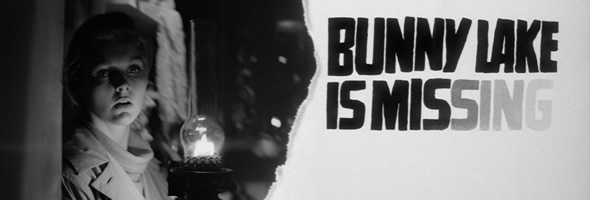
Color, 1965, 107m.
Directed by Otto Preminger
Starring Laurence Olivier, Carol Lynley, Keir Dullea, Clive Revill, Noël Coward, Martita Hunt, Anna Massey, Adrienne Corri
Indicator (Blu-ray & DVD) (UK R0 HD/PAL), Twilight Time (Blu-ray) (US R0 HD), Sony (DVD) (US R0 NTSC, UK R0 PAL) / WS (2.35:1) (16:9)
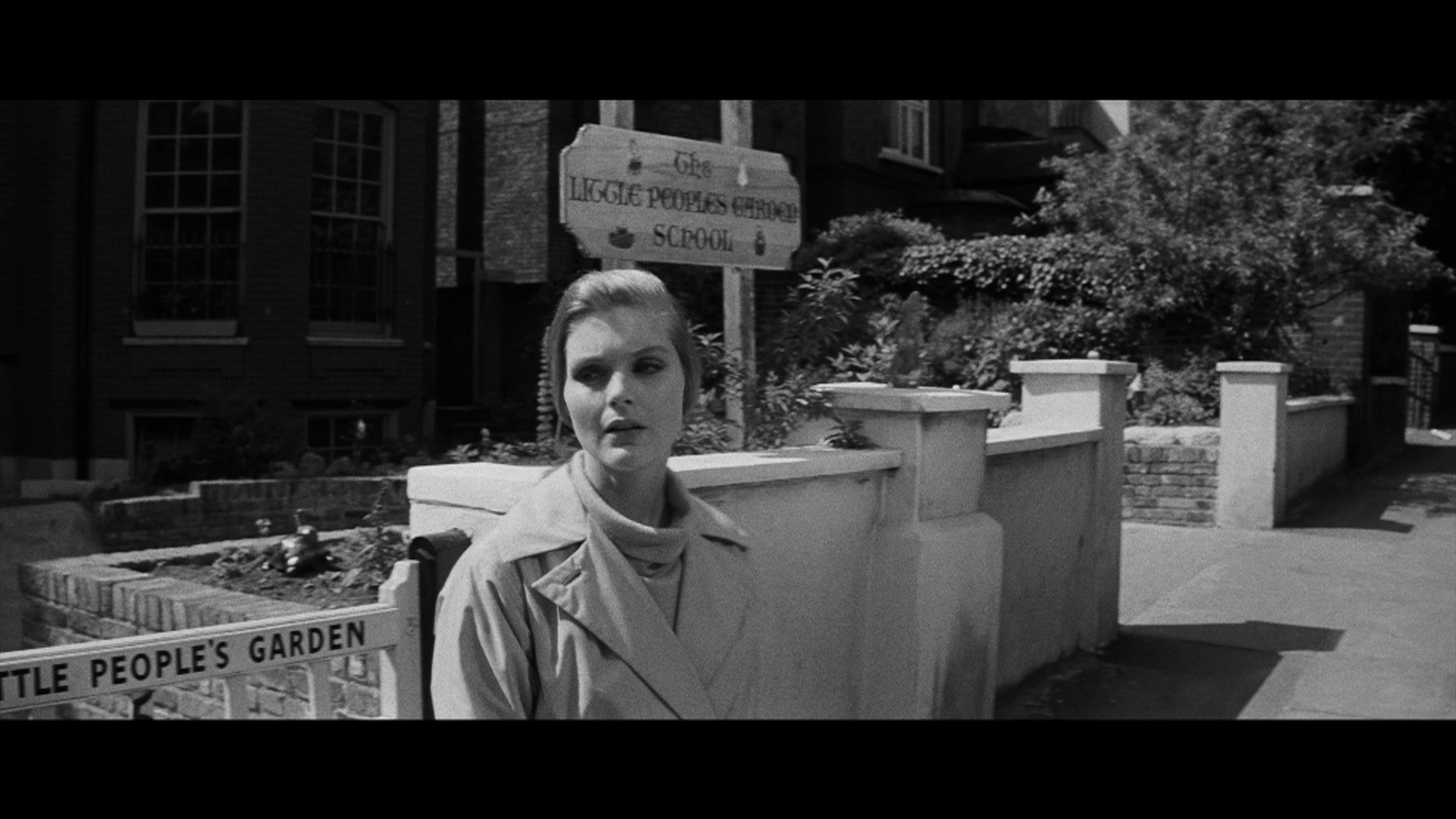
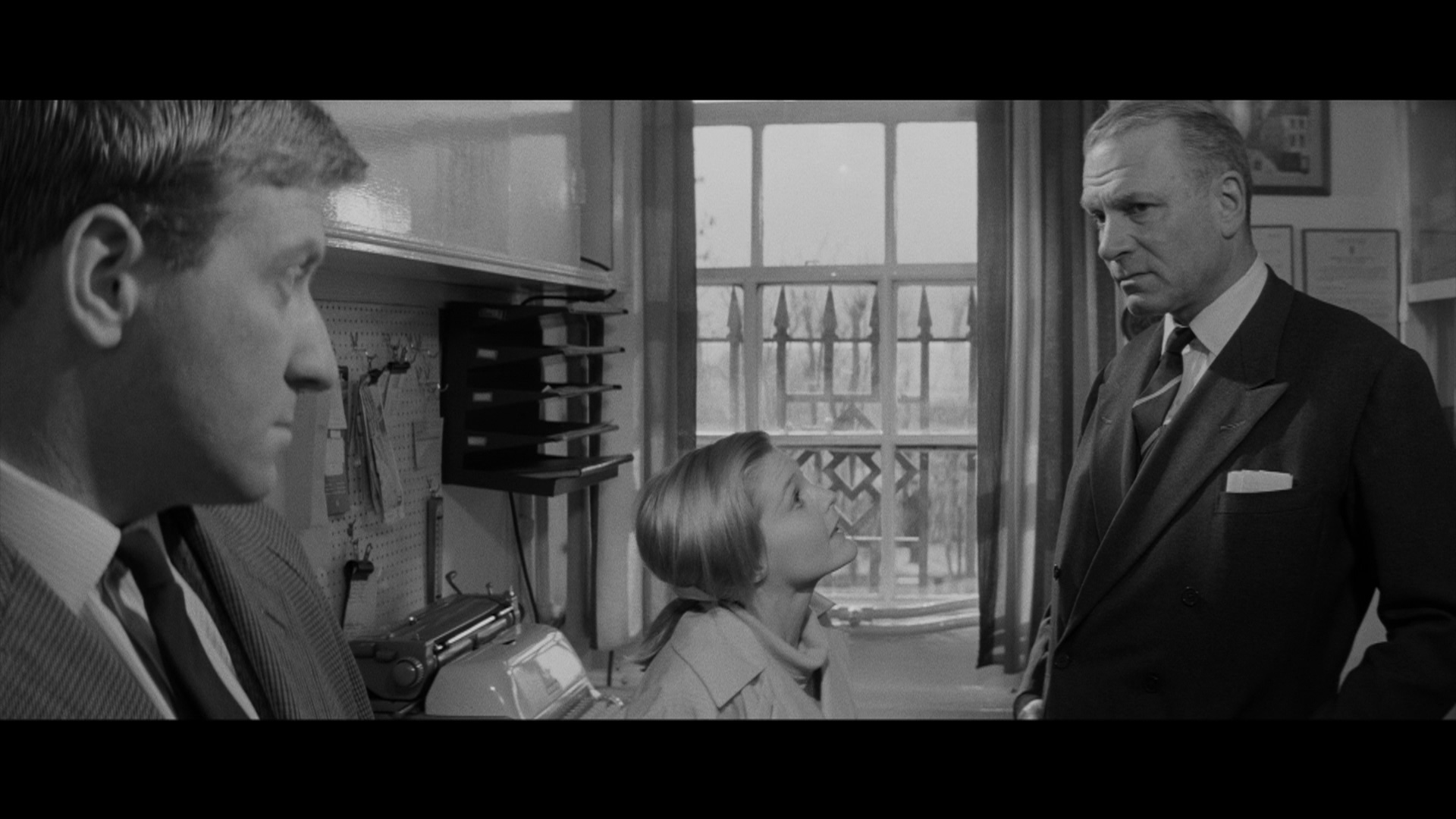
 from preschool only to find her child missing -- and no one with any recollection of ever meeting her. Superintendant Newhouse (Olivier) is brought in to investigate the case and begins to suspect that Ann's story is highly unreliable, especially since she had an imaginary friend named Bunny. The quest to prove the child's existence and whereabouts runs through a strange gallery of characters including Ann's lecherous, macabre landlord (Coward) and the oddball school staff, with the ultimate solution to the mystery coming at great risk to Ann's safety.
from preschool only to find her child missing -- and no one with any recollection of ever meeting her. Superintendant Newhouse (Olivier) is brought in to investigate the case and begins to suspect that Ann's story is highly unreliable, especially since she had an imaginary friend named Bunny. The quest to prove the child's existence and whereabouts runs through a strange gallery of characters including Ann's lecherous, macabre landlord (Coward) and the oddball school staff, with the ultimate solution to the mystery coming at great risk to Ann's safety.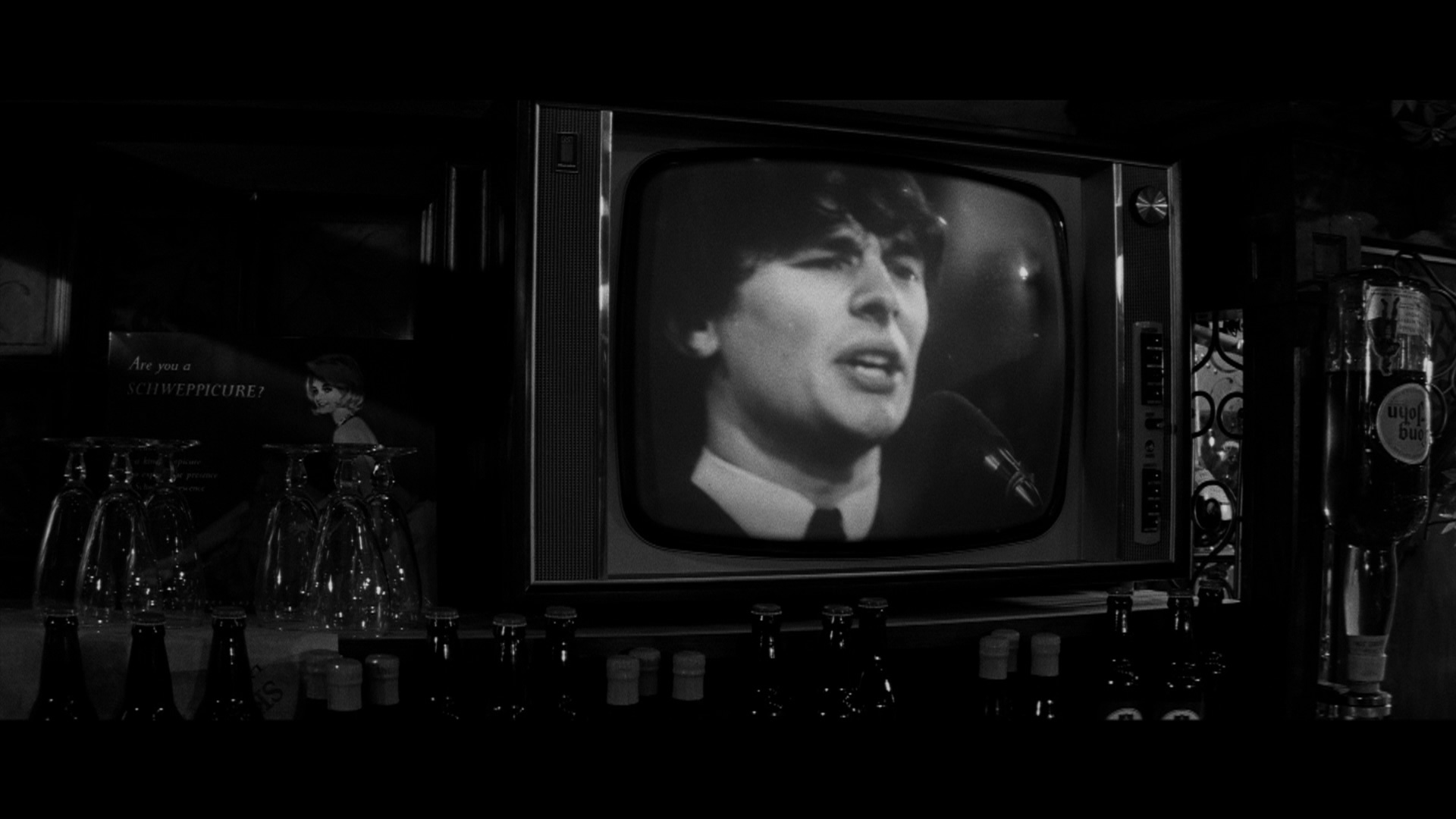
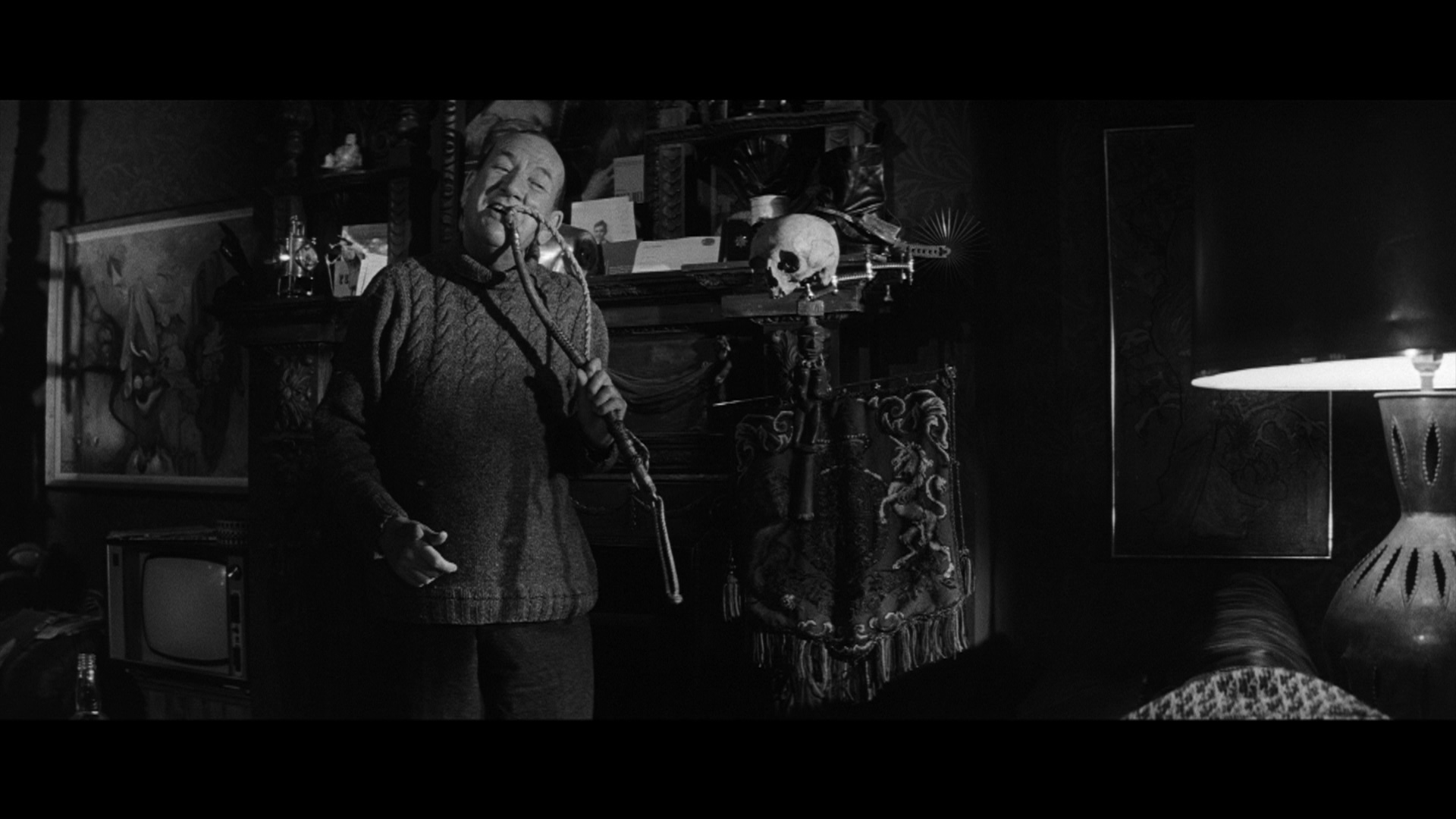 doesn't call for him to do much until fairly late in the game. Also noteworthy is the haunting and very effective music score by jazz musician Paul Glass, who went on to score To the Devil a Daughter and several noteworthy episodes of Night Gallery. In retrospect it's a fascinating turning point in Preminger's career, paving the way for his weirder and far more divisive films that same decade, Hurry Sundown and the loopy LSD epic Skidoo.
doesn't call for him to do much until fairly late in the game. Also noteworthy is the haunting and very effective music score by jazz musician Paul Glass, who went on to score To the Devil a Daughter and several noteworthy episodes of Night Gallery. In retrospect it's a fascinating turning point in Preminger's career, paving the way for his weirder and far more divisive films that same decade, Hurry Sundown and the loopy LSD epic Skidoo. 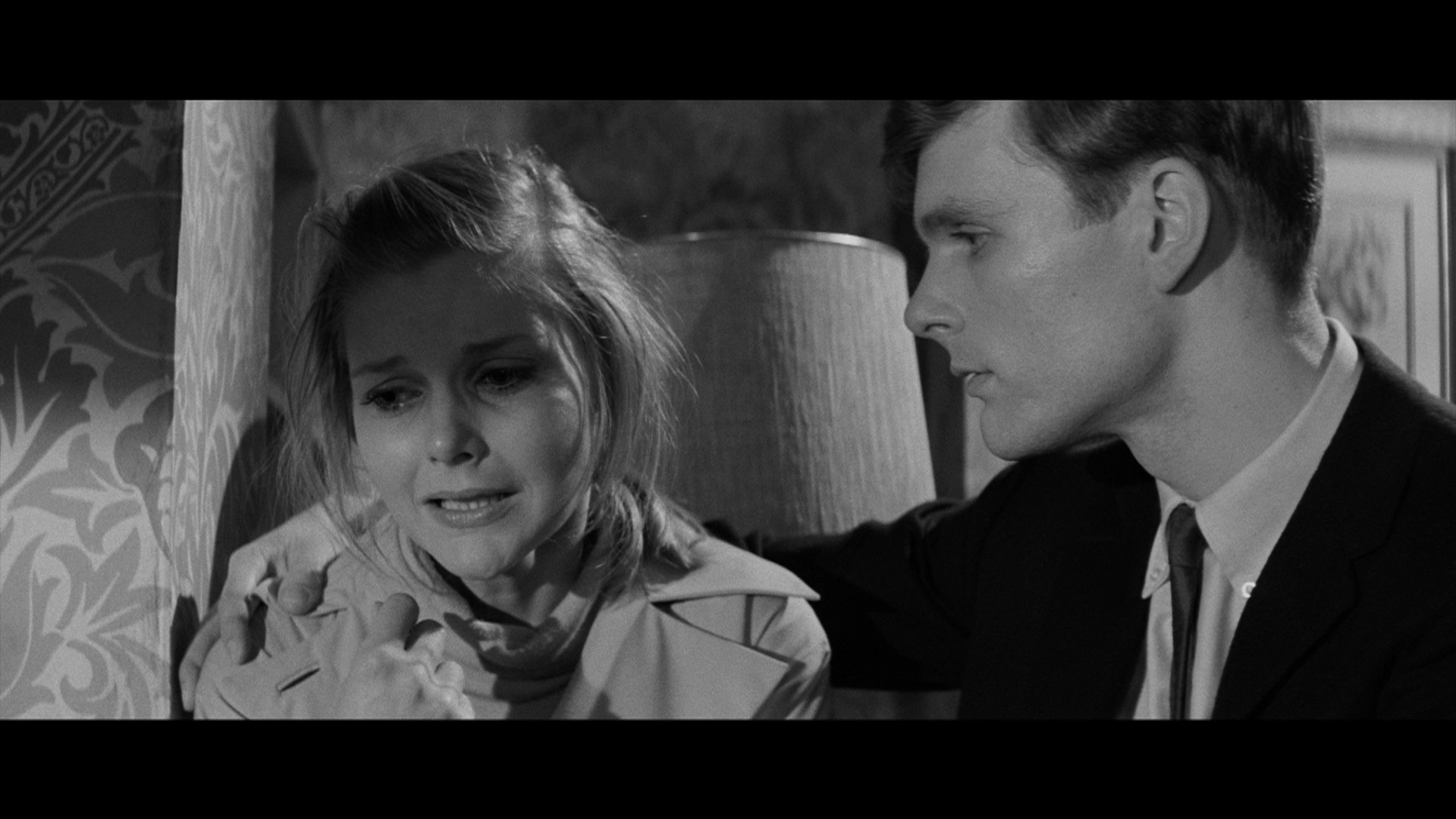 mystery paperback tropes, the backgrounds of everyone in front of and behind the camera, and Preminger's method of cracking what turned out to be very challenging source material. Also included are three trailers, all very much worth watching: a standard version, another introduced by Preminger doing his best Hitchcock or William Castle routine, and a really wild one hosted and sung by The Zombies adapting the one song heard prominently in the film, "Just Out of Reach," into a plea to audiences to "Come On Time" (which was also turned into a radio spot).
mystery paperback tropes, the backgrounds of everyone in front of and behind the camera, and Preminger's method of cracking what turned out to be very challenging source material. Also included are three trailers, all very much worth watching: a standard version, another introduced by Preminger doing his best Hitchcock or William Castle routine, and a really wild one hosted and sung by The Zombies adapting the one song heard prominently in the film, "Just Out of Reach," into a plea to audiences to "Come On Time" (which was also turned into a radio spot). 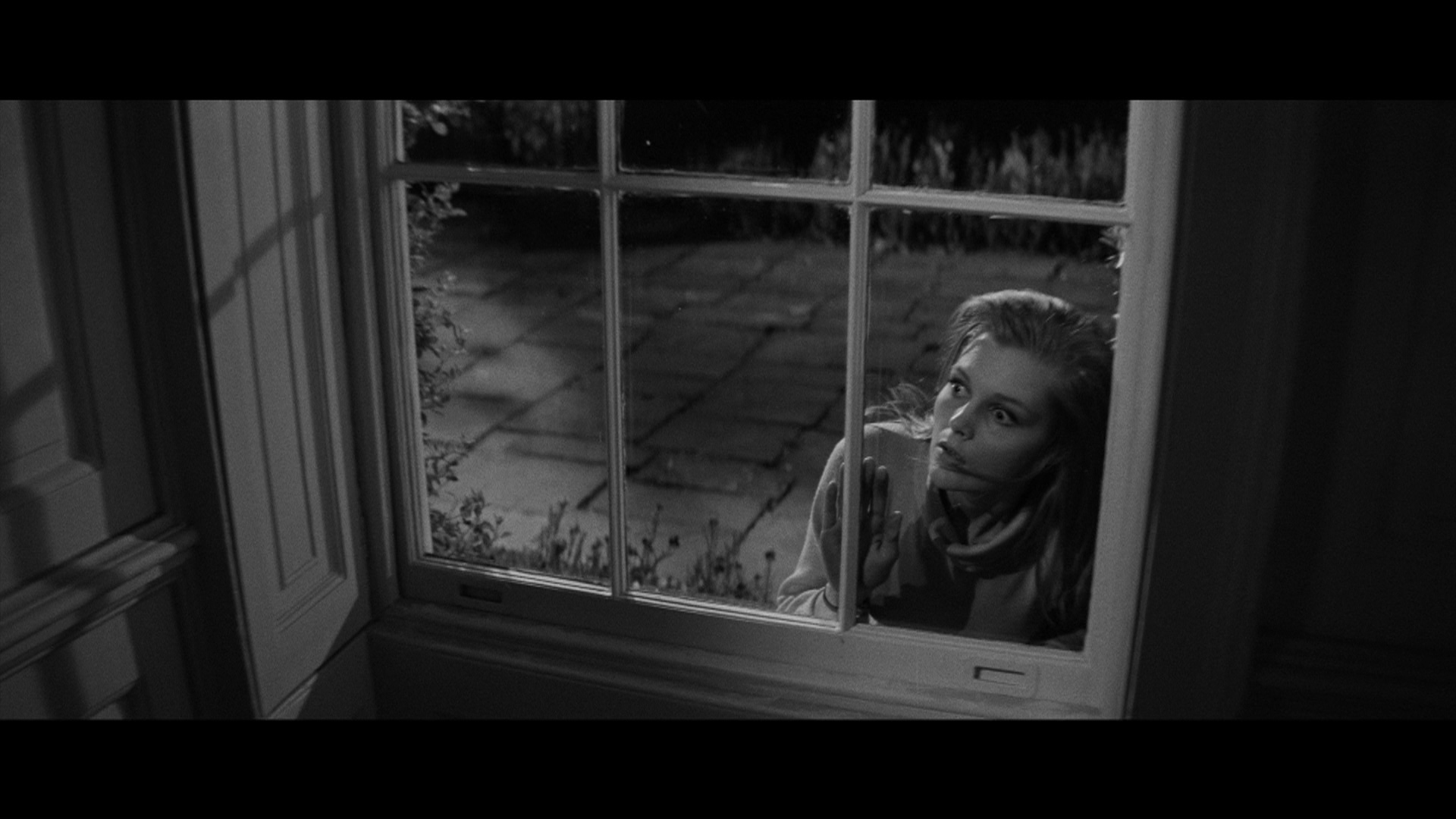 In 2017, UK label Indicator took its own stab at the film with an expanded special edition that should even tempt North American fans to consider importing it. The video transfer knocks up the bit rate a bit, which results in slightly more refined film grain in some brighter shots. It's also slightly darker, which results in an increased sense of depth in many shots; here's a sample frame grab from the Twilight Time disc for comparison to the first one seen in this review. The audio commentary, isolated score, and trailers are all carried over here, and a gallery of stills and poster art is included now as well. New to this release are a pair of great interviews produced by Fiction Factory. In the 26-minute "Carol Lynley Remembers," the star chats about hitting it off with the notoriously tyrannical Preminger on this and The Cardinal, thinking this was one of her best films, being awestruck by Olivier (who had to come shoot at night after doing Othello on stage), and the bizarre number of four-year-old kids on the set. In the 13-minute "Clive Revill Remembers," the articulate actor discusses his stage career (including his famous turn as Fagin in Oliver!) and his segue into this, his first major film role, which he found a lot of fun and a pathway to many future projects. As usual the Indicator liner notes booklet is a work of art in itself, studded with tons of beautiful color production photos, a fine essay by The World and Its Double: The Life and Work of Otto Preminger author Chris Fujiwara (covering the film's journey through screenwriters like Ira Levin and Dalton Trumbo and its relationship to Preminger's take on the need for love throughout his filmography), a sampling of very different critical reviews from the film's release, and a compendium of interviews Preminger gave about the project while it was still in production.
In 2017, UK label Indicator took its own stab at the film with an expanded special edition that should even tempt North American fans to consider importing it. The video transfer knocks up the bit rate a bit, which results in slightly more refined film grain in some brighter shots. It's also slightly darker, which results in an increased sense of depth in many shots; here's a sample frame grab from the Twilight Time disc for comparison to the first one seen in this review. The audio commentary, isolated score, and trailers are all carried over here, and a gallery of stills and poster art is included now as well. New to this release are a pair of great interviews produced by Fiction Factory. In the 26-minute "Carol Lynley Remembers," the star chats about hitting it off with the notoriously tyrannical Preminger on this and The Cardinal, thinking this was one of her best films, being awestruck by Olivier (who had to come shoot at night after doing Othello on stage), and the bizarre number of four-year-old kids on the set. In the 13-minute "Clive Revill Remembers," the articulate actor discusses his stage career (including his famous turn as Fagin in Oliver!) and his segue into this, his first major film role, which he found a lot of fun and a pathway to many future projects. As usual the Indicator liner notes booklet is a work of art in itself, studded with tons of beautiful color production photos, a fine essay by The World and Its Double: The Life and Work of Otto Preminger author Chris Fujiwara (covering the film's journey through screenwriters like Ira Levin and Dalton Trumbo and its relationship to Preminger's take on the need for love throughout his filmography), a sampling of very different critical reviews from the film's release, and a compendium of interviews Preminger gave about the project while it was still in production.